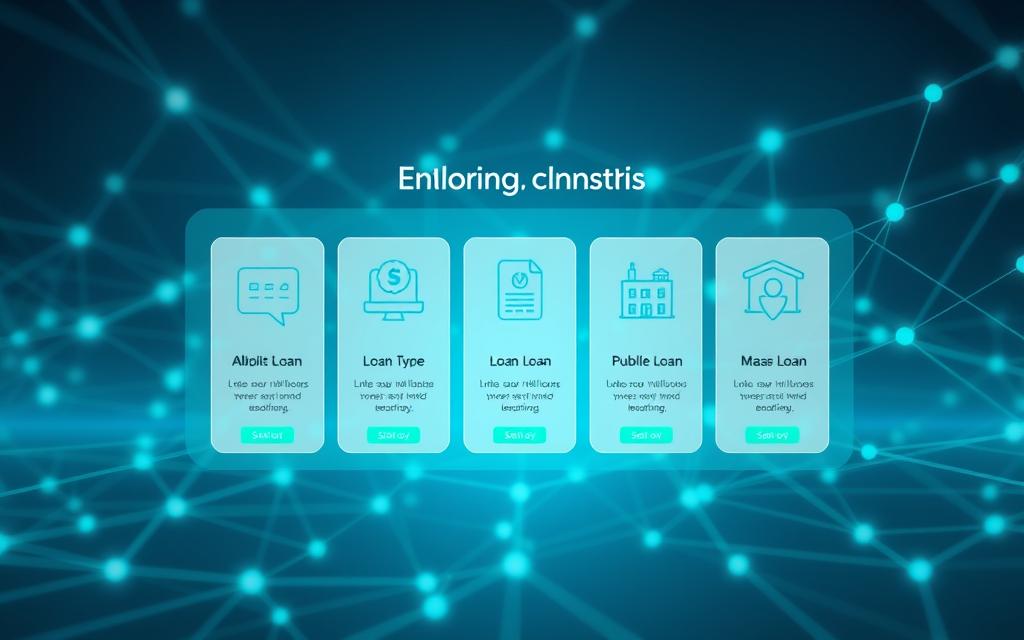Getting a private loan can seem tough with so many choices out there. It’s key to look at credit scores, loan terms, and interest rates1. Private loans are great for extra cash for personal needs or school. Online lenders make it easier to find and compare loans2.
Before getting a private loan, check if you can handle it. Look at your credit score, income, and expenses. This helps you decide if a personal loan or another option is right for you3.
In this article, we’ll dive into private loans. We’ll talk about credit scores, applying for loans, and your options. Our aim is to guide you through the private loan world, helping you choose wisely for your finances.
Key Takeaways
- Private loans can be a viable alternative financing option for individuals who require additional funds.
- Assessing your financial readiness is crucial when considering a private loan.
- Understanding credit scores and their impact on loan terms is essential.
- Comparing offers from different lenders can help you make an informed decision.
- Private loans can be used for personal expenses or education.
- Online lending platforms have streamlined the process of applying for a private loan.
Understanding Private Loans: The Basics
It’s key to know the difference between a secured and unsecured loan4. A secured loan needs something valuable, like a car or house, as collateral. On the other hand, an unsecured loan doesn’t need collateral5. To get a personal loan, you need a steady income, good credit, and a bank account you can verify4.
Private loans can help with education costs or debt consolidation. It’s important to know the loan’s terms, like the interest rate, how you’ll pay it back, and any fees6. Some loans offer flexible payment plans, while others are stricter5.
When looking at private loan options, think about these things:
- Interest rate: Is it fixed or variable?
- Repayment terms: What are the monthly payments and the loan’s length?
- Fees: Are there any fees for starting the loan, late payments, or other costs?
By looking at these points and understanding private loans, you can choose the best loan for you4.
Assessing Your Financial Readiness
Before you apply for a loan, it’s key to check if you’re ready financially. Look at your credit score, debt-to-income ratio, and if you can afford it7. A good credit score can help you get approved and get lower interest rates. It’s a good idea to check your credit score to understand your financial health7.
To see if you can afford it, figure out your debt-to-income ratio. It should be less than 43% of your income7. This includes all your loan and credit card payments, plus the new one. Having a steady job, a good credit history, and a bank account you can prove you have are also important for getting a loan.
When looking for financial help, think about these things:
- Credit score and history
- Debt-to-income ratio
- Affordability and budget
- Stable income and employment
These points will help you know if you’re ready for a loan. They ensure you’re making a smart choice for your money.
By carefully looking at your finances and thinking about these points, you can boost your chances of getting a loan. Always look at and compare different loan options to find the best one for you8.
The Importance of Credit Scores in Private Lending
Credit scores are key in private lending. They decide the loan’s interest rates and repayment terms9. A high score means lower rates, while a low score means higher rates and tougher terms9. Scores range from 300 to 850, with higher numbers showing better credit9.
To boost your score, pay bills on time and use credit wisely10. Avoid applying for too many credit cards10. Also, check your credit reports for errors and fix them if needed11. A good score can help you get a loan with better terms9.
The table below shows the typical credit score ranges and their corresponding descriptions11:
| Credit Score Range | Description |
|---|---|
| 300-579 | Poor |
| 580-669 | Fair |
| 670-739 | Good |
| 740-799 | Very Good |
| 800-850 | Excellent |
In online lending, credit scores help lenders decide on interest rates and repayment terms9. Knowing how credit scores work can help you improve yours. This can increase your chances of getting a loan with good terms9.
Choosing Between Secured and Unsecured Private Loans
Borrowers face a choice between secured and unsecured loans. A secured loan needs collateral, which the lender can take if payments stop12. An unsecured loan doesn’t need collateral but has higher interest rates13.
Secured loans usually have lower interest rates and allow for borrowing more money12. But, they might limit how you can use the money. Unsecured loans are more flexible but cost more in interest and have stricter rules13.
Some main differences between secured and unsecured loans are:
- Interest rates: Secured loans have lower rates, about 20% less than unsecured loans12.
- Borrowing limits: Secured loans let you borrow more, while unsecured loans are capped at $100,000 or less13.
- Repayment terms: Both types usually have repayment times between two to seven years13.

The choice between secured and unsecured loans depends on your situation. It’s crucial to think about each option’s terms before deciding12.
Documentation Required for Private Loan Applications
When you apply for a private loan, you need to provide the right documents. This is key to a smooth process and better approval chances14. We’ll show you what documents you usually need, like income proof, personal info, and more.
Lenders ask for different things, but often want pay stubs, tax returns, and bank statements15. You might also need to show who you are and where you live. This can be done with ID and utility bills or rental agreements16. A good credit score can also help you get approved and might even lower your interest rates16.
It’s very important to give accurate and full information in your loan application. Wrong details can cause your loan to be denied. But, giving all the right documents can speed up getting your money14. So, get all your documents ready before you apply. This way, you’ll have a better chance of getting approved and getting the help you need15.
In short, knowing what documents you need for a private loan is crucial for success. By providing the right documents and keeping a good credit score, you can boost your approval chances. This will help you get the financial help you need to reach your goals.
How to Compare Private Loan Offers
When looking for financial help, it’s key to compare private loan offers from different lenders. Online platforms make it easy to compare rates, terms, and fees from many lenders at once17. Start by looking at the Annual Percentage Rate (APR), which can be between 7.8% and 35.99%17.
Begin by comparing offers from three to five lenders. Look at loan terms, which can last from 12 months to 84 months17. Also, check the borrowing amounts, which can be from $500 to $100,00017. Some lenders might offer better terms if you provide collateral, like secured loans18. It’s important to also look at the fees, including origination fees, which can be from 0.00% to 9.99%17.
When comparing private loan offers, focus on these key points:
- Interest rates and APR
- Loan terms and repayment options
- Fees, including origination fees and late payment fees
- Lender reputation and customer service
By carefully looking at these factors and thinking about your financial situation, you can make a smart choice. This way, you can pick the best private loan offer for you18.

Remember, comparing private loan offers is a crucial step in finding the right financial help. By doing your research and evaluating your options, you can get the best deal. This will help you succeed19.
Understanding Interest Rates and Terms
When you apply for a loan, knowing about interest rates and terms is key. A good credit score can help you get a lower interest rate20. Personal loan APRs can vary from under 8 percent to over 35.99 percent, mainly based on your credit score20.
A small increase in interest rates can add up to a lot of extra money over time. For instance, going from 5% to 6% on a $15,000 loan means paying an extra $328 in interest21. This shows why it’s crucial to check the loan terms carefully before agreeing to them.
When looking at loan terms, consider these important points:
- Fixed vs. variable interest rates
- Repayment terms and options
- Hidden fees and charges
Understanding these aspects and their connection to your credit score helps you make a better choice when applying for a loan.
Online Lending Platforms and Their Benefits
Online lending platforms have changed how we get financial help. Now, you can apply for personal loans from home22. LendingClub, for example, offers loans up to $40,000 with fixed rates and easy payment plans22. This ease and reach have made online lending very popular.
Online lending is also quick. You can apply and get a decision in minutes23. Plus, these platforms offer tools and resources to help you make smart financial choices24.
Some key features of online lending platforms include:
- Convenience and accessibility
- Speed of application process
- Educational resources and tools
- Competitive interest rates and terms

Online lending platforms have made getting financial help easier. They offer a quick, easy, and educational experience. This is why they’re a top choice for personal loans22.
| Platform | Loan Amount | Interest Rate |
|---|---|---|
| LendingClub | $1,000 to $40,000 | 8.98% to 35.99% APR |
| Upstart | $1,000 to $50,000 | 7.40% to 35.99% |
| Prosper | $1,000 to $50,000 | 8.99% to 35.99% |
Traditional Banks vs. Alternative Lenders
When looking at a borrower’s loan, it’s key to compare traditional banks and alternative lenders. Traditional banks usually have secured loans with lower interest rates and flexible payback plans25. But, they might have strict rules, making it hard for some to get a loan.
Alternative lenders, though, might be more open with their credit rules and quicker to process applications26. They offer various loan types, like loans backed by assets. Some, like Speritas Capital, work with many lenders and investors, giving borrowers more choices26.
Advantages of Traditional Banks
Traditional banks are known for their solid reputation and wide range of services. They can give secured loans with good rates and flexible payback plans25.
Benefits of Alternative Lenders
Alternative lenders offer quick funding and are more flexible with credit. They can help companies at any stage without strict ‘time in business’ rules26. This makes them a good choice for those who can’t get loans from traditional banks.
In summary, both traditional banks and alternative lenders have their pros and cons. Borrowers should think about what they need and pick the best option. Whether it’s a secured loan from a bank or a flexible one from an alternative lender, the goal is to find a loan that fits their financial goals2526.
Maximizing Your Chances of Loan Approval
To boost your loan approval chances, a good credit score is key. A high score means better loan terms and lower interest rates27. Always check your credit report for mistakes, as many people find errors27. Keeping your credit use below 30% of your limit is also important27.
Lenders look at your debt-to-income ratio when you apply for a loan application. Aim for a ratio under 36% for the best chance28. To improve your ratio, pay off debts or earn more money.
Some lenders are more flexible, even with lower credit scores29. But, these loans might have higher interest rates. It’s smart to compare offers and pick the best one for you. With a solid credit score and these tips, you can get a loan with good terms.

Common Private Loan Application Mistakes to Avoid
When you apply for a private loan, it’s key to steer clear of common errors. These mistakes can slow down or even block your loan approval. One major thing is to give accurate and full documentation. This is crucial because it lets lenders check if you can handle the loan30. You’ll also need to show documents to prove what you said on your application31.
Many people forget to compare loan rates before applying. This can cost you around $300 a year in higher interest30. It’s important to look at different loans. Think about the interest rates, how long you’ll pay it back, and any extra fees. This way, you can pick the best loan for your money needs.
Another big mistake is sending in incomplete applications. This can slow down your loan approval by up to 20%30. Make sure you have everything needed before you apply. This will help you avoid delays and boost your chances of getting approved. It lets you get the financial help you need.
Knowing these common mistakes and how to avoid them can help you get your loan approved. This way, you can get the financial help you need to reach your goals.
The Role of Cosigners in Private Loans
Many people need a cosigner for private loans, like student loans, because of bad credit32. This is common for young students who haven’t built a good credit history33. A cosigner with good credit can help get the loan approved and might even get a better interest rate33.
For secured loans, a cosigner is key in getting the loan or better terms32. But, both the borrower and cosigner must know the risks and duties of cosigning. The cosigner’s credit score might drop because of the lender’s hard credit check32. If the borrower misses payments, the cosigner’s score could also suffer33.
Important things to think about for borrowers and cosigners include:
- Understanding the loan terms and the cosigner’s duties
- Talking openly about money and repayment plans
- Looking into options for cosigner release after making payments on time
By understanding the role of cosigners in private loans, people can make smart choices. This helps in getting the best terms for their loans3233.
Private Loan Repayment Strategies
Repaying private loans needs a good plan. Your credit score plays a big role, as it can change the interest rate you get. This, in turn, affects your loan application34. shows that private student loan lenders don’t have to offer relief. So, borrowers must show they can’t pay with documents like pay stubs and bank statements.
Managing monthly payments is key. Make a budget that includes all your expenses, including loan payments. This way, you can make sure your payments fit your budget, as34 suggests. Also, know the costs of repayment options, like fees and extra interest, as35 points out.
Some strategies for repaying private loans include:
- Early repayment to cut down on interest
- Income-driven repayment plans to lower monthly payments based on income and household size, as federal student loans offer36
- Consolidating loans to simplify payments and possibly lower interest rates
It’s important to know the costs of repayment options and review the loan terms carefully before deciding35.
By thinking about these strategies and keeping an eye on your credit score, you can manage your private loan payments well. This way, you can make smart choices about your loan application.
| Repayment Strategy | Benefits | Risks |
|---|---|---|
| Early Repayment | Reduced interest paid | Potential penalties for early payment |
| Income-Driven Repayment | Lower monthly payments | Potential increase in overall interest paid |
Protection and Insurance Options
When you apply for a loan, it’s key to look into protection and insurance. These can help in unexpected times37. The Federal Trade Commission says there are four main types: credit life, credit disability, involuntary unemployment, and credit property insurance37. They help if you can’t work due to health or lose your job37.
Lenders might offer protection like credit insurance or disability insurance37. The price depends on your age, credit, and debt38. Make sure you can afford the extra cost of credit insurance37. Always check the policy details to find what suits you best.
Loan protection insurance helps with payments during tough times like illness or job loss38. But, the price changes based on your age, credit, and debt38. Think carefully about each option to choose the right one for you.
What to Do If Your Private Loan Application Is Denied
Having your private loan application denied can be tough. But, there are ways to boost your approval chances. A bad credit history can hurt over 65% of applicants39. First, check your finances and see where you can get better.
Your credit score matters a lot. Lenders often look for a score of at least 64040. You can get your credit report from Experian, Equifax, and TransUnion once a year. This helps you keep an eye on and better your score39. Paying on time and lowering your debt can also help, as 35% of your score comes from payment history39.
Alternative Financing Options
If you’re turned down, think about other ways to get money. This could be credit cards or loans from different lenders. You might also look into home equity loans or lines of credit (HELOCs). About 30% of applicants with a good cosigner were approved after being denied first39.
Steps to Reapply Successfully
To get approved next time, work on your credit score and lower your debt. Also, try to make more money. Staying in one place for a year can help your chances too40. Getting pre-qualified doesn’t hurt your score, so it’s a good first step40. By improving these areas and looking at other financing options, you can get the help you need.
Conclusion: Making the Right Private Loan Decision
We’ve reached the end of our guide, and we hope you understand more about . It’s important to make a choice that fits your needs and situation41.
Remember, private loans have their good and bad sides. Federal student loans might have fixed rates, flexible plans, and forgiveness options. But, if you’ve used up all your federal loans, a private loan could be a good choice41.
When looking at options, compare rates, terms, and any extra fees41. Keep an eye on your credit score and have all needed documents ready for approval42. If you need a cosigner, pick someone with good credit who knows what they’re getting into41.
Choosing the right loan means thinking about your finances, education goals, and future plans. By using the tips from this article, you’ll be ready to get the funding you need for your studies42.
FAQ
What defines a private loan?
Private loans are not part of the federal student loan program. They have different terms and interest rates. Also, they have their own rules for who can get them.
What are the common types of private loans?
There are several types of private loans. These include personal loans, credit card loans, and lines of credit. Each has its own special features and rules.
How do private loans differ from federal loans?
Private loans usually have higher interest rates and less flexible repayment plans. They also have different rules for who can get them. Plus, they don’t offer the same protections and forgiveness options as federal loans.
Why is it important to assess my financial readiness before applying for a private loan?
Knowing your financial situation is key before applying for a private loan. This includes your credit score, debt-to-income ratio, and job stability. It helps you know if a private loan is right for you and if you can get good terms.
How important is my credit score for getting a private loan?
Your credit score is very important for private loans. It affects if you can get a loan, the interest rate, and the repayment terms. Most lenders have a minimum credit score requirement for private loans.
What are the differences between secured and unsecured private loans?
Secured loans need collateral, like a car or house. Unsecured loans don’t need collateral. Secured loans might have lower interest rates but are riskier. Unsecured loans have higher rates but are safer for the borrower.
What documentation is required for a private loan application?
You’ll need to provide income proof, personal details, and other documents. This could be proof of assets or job. Giving accurate and complete information is key for a smooth application.
How can I compare private loan offers?
When comparing private loan offers, look at the interest rates, repayment terms, and fees. Also, consider the lender’s reputation, customer service, and loan options. This helps you find the best loan for your needs.
What are the advantages of using an online lending platform for a private loan?
Online platforms offer convenience, speed, and easy access. But, it’s important to compare different online lenders to find the best one.
What are the key differences between traditional banks and alternative lenders for private loans?
Banks usually offer lower interest rates and more flexible repayment plans. Alternative lenders might have quicker application processes and more flexible credit requirements. It’s important to consider the pros and cons of each option.
What common mistakes should I avoid when applying for a private loan?
Avoid mistakes like errors in your application or timing issues. These can delay or deny your loan. Double-check your application and provide accurate information.
What are the benefits and risks of having a cosigner for a private loan?
Cosigners can help you qualify for more money and better rates. But, they also share the responsibility of repaying the loan. It’s important to choose a responsible cosigner and understand the risks.
What strategies can I use to repay my private loan?
To repay your loan, take advantage of early repayment options. Manage your monthly payments within your budget. Also, prioritize your loan payments to repay on time.
What insurance options are available for private loans?
You might have access to credit insurance and disability insurance. These can protect you financially in case of job loss, illness, or other unexpected events. It’s important to understand the benefits and drawbacks of each insurance type.
What should I do if my private loan application is denied?
If your application is denied, look into other financing options like credit cards or personal loans from other lenders. You can also work on improving your credit score, reducing your debt-to-income ratio, and increasing your income to reapply successfully.
Source Links
- Best Private Student Loans for College in 2025 – NerdWallet – https://www.nerdwallet.com/best/loans/student-loans/private-student-loans
- Private Student Loans – Finaid – https://finaid.org/loans/privatestudentloans/
- Types Of Private Student Loans & How To Choose | Bankrate – https://www.bankrate.com/loans/student-loans/types-of-private-student-loans/
- Private Student Loans: What They Are & How They Work | Bankrate – https://www.bankrate.com/loans/student-loans/private-student-loans-guide/
- Federal Loans vs. Private Loans – Student Loan Borrowers Assistance – https://studentloanborrowerassistance.org/for-borrowers/basics-of-student-loans/federal-loans-vs-private-loans/
- Understanding Student Loans: The Basics | SchoolHouse Connection – https://schoolhouseconnection.org/article/understanding-student-loans-the-basics
- Can I Actually Buy a Home? A Financial Readiness Assessment. – https://www.bankwithunited.com/learning/home-buying/can-i-actually-buy-a-home.html
- Assessing Your Financial Readiness – FasterCapital – https://fastercapital.com/topics/assessing-your-financial-readiness.html
- Credit Scores & Private Lending Rates: Key Impact – https://sevenlending.ca/the-impact-of-credit-scores-on-private-lending-rates/
- Building Credit with Private Lending – https://mortgagebrokerstore.com/blog/building-credit-with-private-lending
- Signficance of Credit Scores in Private Lending | Vado Private – https://vadoprivate.com.au/what-is-the-signficance-of-credit-scores-in-private-lending/
- Secured vs. Unsecured Personal Loans: Key Differences | Bankrate – https://www.bankrate.com/loans/personal-loans/secured-vs-unsecured-personal-loans/
- Secured vs. Unsecured Loan: What’s the Difference? – NerdWallet – https://www.nerdwallet.com/article/loans/personal-loans/secured-vs-unsecured-loans
- What Documents are Needed for Personal Loan? – https://www.onemainfinancial.com/resources/loan-basics/what-documents-do-you-need-to-apply-for-a-personal-loan
- Loan Documentation – https://www.mbda.gov/page/loan-documentation
- What Documents Are Required For A Personal Loan? | Bankrate – https://www.bankrate.com/loans/personal-loans/documents-required-for-personal-loan/
- How to Compare Personal Loans From Different Lenders – https://www.investopedia.com/compare-personal-loans-different-lenders-7974017
- How to compare loan offers to get the best deal for you – https://www.creditkarma.com/personal-loans/i/how-to-compare-loans
- Credible Private Student Loans – https://www.credible.com/student-loans
- Interest Rates: Different Types and What They Mean to Borrowers – https://www.investopedia.com/terms/i/interestrate.asp
- What Do Interest Rates Really Mean? | Equifax® – https://www.equifax.com/personal/education/personal-finance/articles/-/learn/what-do-interest-rates-mean/
- Online Personal Loans + Full-Service Banking | LendingClub – https://www.lendingclub.com/
- Online Lending Platforms | LKCS – Digital Lending – https://www.lk-cs.com/digital/online-lending-platform
- Best peer-to-peer personal loan lenders to consider in 2025 – https://www.cnbc.com/select/best-peer-to-peer-personal-loans/
- Private vs. Traditional Lenders: Navigating Similar Challenges with Technology – https://www.afsvision.com/blog/private-vs.-traditional-lenders
- Benefits of Nonbank Lenders vs. Bank Lenders | Alternative Lender pros & cons – https://www.speritascapital.com/articles/alternative-nonbank-financing-vs-bank-financing-what-is-nontraditional-lending
- How To Boost Your Personal Loan Approval Odds | Bankrate – https://www.bankrate.com/loans/personal-loans/boost-chances-of-personal-loan-approval/
- 6 Tips to Boost Your Chances of Personal Loan Approval – NerdWallet – https://www.nerdwallet.com/article/loans/personal-loans/personal-loan-application-tips-win-approval
- Increase your odds of getting approved for a personal loan with these 4 tips – https://www.cnbc.com/select/how-to-improve-chances-of-personal-loan-approval/
- Common Mistakes To Avoid When Applying for a Loan — Shell Western States FCU – https://swsfcu.org/blog/common-mistakes-to-avoid-when-applying-for-a-loan
- 6 Personal Loan Mistakes And How To Avoid Them | Bankrate – https://www.bankrate.com/loans/personal-loans/personal-loan-mistakes/
- Private Student Loans: Understanding the Role of a Cosigner – https://asla.info/2024/08/05/private-student-loans-understanding-the-role-of-a-cosigner
- The Role of a Cosigner in Private Student Loans: A Comprehensive Guide – https://www.lendkey.com/blog/general/the-role-of-a-cosigner-in-private-student-loans-a-comprehensive-guide/
- Options for repaying your private education loan | Consumer Financial Protection Bureau – https://www.consumerfinance.gov/paying-for-college/repay-student-debt/private-student-loans/
- Options for repaying your federal and private student loans | Consumer Financial Protection Bureau – https://www.consumerfinance.gov/paying-for-college/repay-student-debt/federal-and-private-student-loans/
- Understanding Student Loans: Strategies & Repayment Plans – EDCAPNY.org – https://www.edcapny.org/resources-for-borrowers/student-loan-repayment-strategies-plans/
- Personal Loan Credit Insurance | Bankrate – https://www.bankrate.com/loans/personal-loans/personal-loan-credit-insurance/
- Is Loan Protection Insurance Right for You? – https://www.investopedia.com/articles/pf/08/loan-protection-insurance.asp
- What to do when denied for a private student loan – https://www.salliemae.com/blog/denied-for-private-student-loan/
- What to Do if You’re Denied a Personal Loan – https://www.investopedia.com/what-if-youre-denied-personal-loan-7565363
- Federal vs. Private Student Loans: Which is Right for You? – https://www.businessinsider.com/personal-finance/student-loans/federal-vs-private-student-loans
- How to Pay for College – https://www.thefirstbank.com/resources/making-informed-financial-decisions-about-paying-for-college


